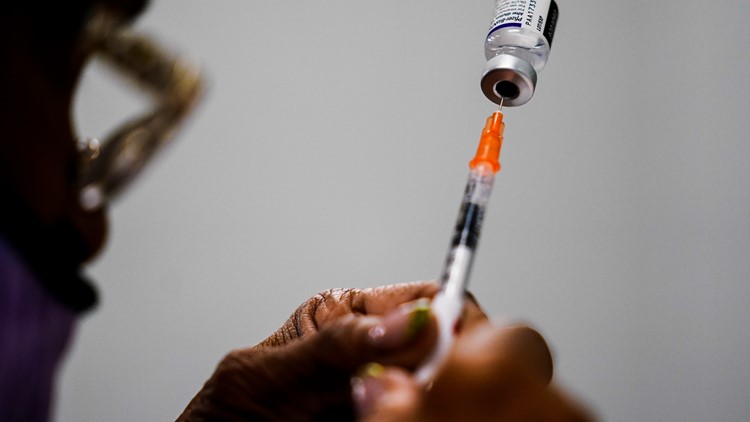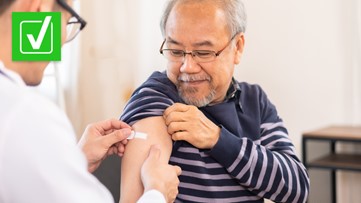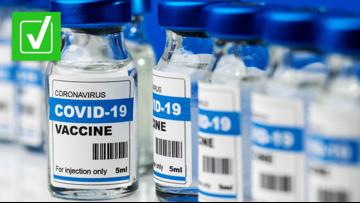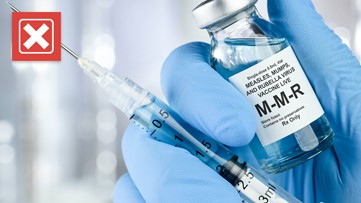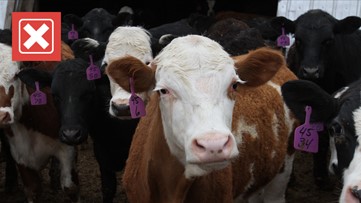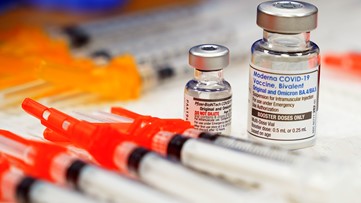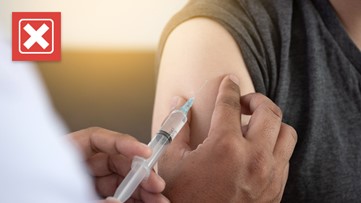Pharmaceutical company Pfizer has come under fire on social media in recent weeks over alleged admissions about clinical trials for its COVID-19 vaccine.
Rob Roos, a conservative European Parliament member from the Netherlands, wrote in a viral tweet on Oct. 11, “BREAKING: In COVID hearing, Pfizer director admits: vaccine was never tested on preventing transmission. ‘Getting vaccinated for others’ was always a lie.” The tweet includes a video clip showing an exchange between Roos and a Pfizer executive.
Other posts shared on Twitter and Facebook have made similar claims, implying that Pfizer leadership was making this admission for the first time.
VERIFY reader Janet asked the team, “Is it true that Pfizer did not know whether the COVID vaccine stopped transmission before rollout?”
THE QUESTION
Did Pfizer admit that it didn’t know whether the COVID-19 vaccine stopped virus transmission before it was available to the public?
THE SOURCES
- Meeting of the European Parliament’s Special Committee on the COVID-19 Pandemic
- Pfizer BioNTech
- The U.S. Food and Drug Administration (FDA)
- European Medicines Agency
- Kawsar Talaat, M.D., associate professor at the Johns Hopkins School of Public Health
THE ANSWER
It’s true that Pfizer didn’t know whether its COVID-19 vaccine stopped transmission before it was available to the public. But this wasn’t the primary goal of the vaccine, nor was it a requirement for authorization in the U.S. or Europe.
WHAT WE FOUND
The exchange between Roos and Janine Small, president of international markets at Pfizer, took place during a meeting of the European Parliament’s Special Committee of the COVID-19 Pandemic on Oct. 10. A video of that meeting is available on the European Parliament’s website.
About 15:23 into the video, Roos asks, “Was the Pfizer COVID vaccine tested on stopping the transmission of the virus before it entered the market? If not, please say it clearly. If yes, are you willing to share the data with this committee?”
Small answers the question at 15:31:45 into the video, saying, “No. We had to really move at the speed of science to really understand what is taking place in the market.”
The primary goal of Pfizer’s COVID-19 vaccine was not to prevent transmission, nor was that a requirement for its initial authorization in both the U.S. and Europe.
Kawsar Talaat, M.D., an expert on vaccine research and an associate professor at the Johns Hopkins School of Public Health, told VERIFY that “clinical trials that evaluate vaccines are designed to assess prevention of disease, not prevention of transmission.”
More from VERIFY: Important context left out of COVID-19 natural immunity claims after CDC study release
In June 2020, as vaccines were still being researched and developed, the U.S. Food and Drug Administration (FDA) laid out “key considerations” for COVID-19 vaccine clinical trials.
The FDA said, in part, that vaccine development programs should pursue approval by showing direct evidence of the vaccine’s effectiveness in preventing coronavirus infection and/or disease. The federal health agency’s guidance did not mention transmission prevention.
Pfizer also clarified in a statement to VERIFY that its phase 3 clinical trial for the COVID-19 vaccine was designed to evaluate how effective the vaccine was at keeping people from getting sick.
The trials “were not designed to evaluate the vaccine’s effectiveness against transmission of SARS-CoV-2,” a spokesperson for the company told VERIFY.
The European Medicines Agency’s 2020 authorization documents for Pfizer’s COVID-19 vaccine make a similar statement.
“It is presently not known if the vaccine protects against asymptomatic infection, or its impact on viral transmission. The duration of protection is not known,” the documents say.
The FDA authorized Pfizer’s COVID-19 vaccine for emergency use in the U.S. on Dec. 18, 2020. In a press release about the authorization, the FDA said there wasn’t evidence that “the vaccine prevents transmission of SARS-CoV-2 from person to person.”
There wasn’t evidence that the Moderna or Johnson & Johnson COVID-19 vaccines prevented virus transmission when they were authorized, either, according to the FDA.
Research about the effects of COVID-19 vaccines in preventing spread of the virus is still ongoing, but some studies suggest that being up to date on vaccinations can provide some level of protection against transmission that wanes over time.
More from VERIFY: Yes, Pfizer’s CEO did get the Pfizer COVID-19 vaccine

